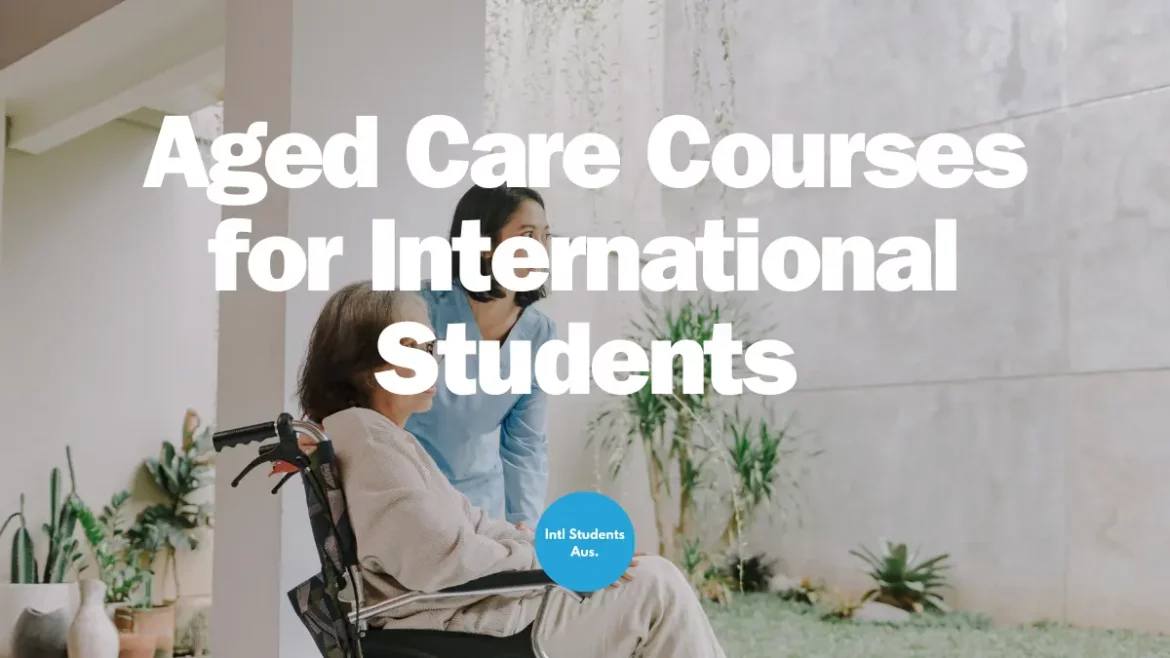Pursuing an aged care course offers numerous benefits due to the increasing demand for trained professionals in the field. With projections indicating a five-fold rise in employment opportunities by 2025, completing such a course equips individuals with the necessary knowledge and skills for success. Australia’s aging population, expected to reach 18% by 2031, further underscores the need for skilled caregivers.
Why do students study aged care?
Aged care, a vital subset of the health industry, provides job stability and opportunities for career advancement. Workers can earn up to $900 weekly, with part-time options available for flexibility. Employers seek compassionate individuals with strong communication skills and a pleasant demeanor.
Beyond financial rewards, working in aged care offers personal fulfillment by positively impacting the lives of older adults, assisting them in maintaining independence and quality of life. This makes it an ideal career path for those passionate about elderly care and making a meaningful difference.
Responsibilities and Roles
One of the core responsibilities of an Aged Care Worker is to organize and facilitate activities aimed at enhancing emotional, social, and physical well-being. From engaging in games and gardening to reading and gentle exercise, Aged Care Workers ensure the elderly individuals they assist are cared for, content, and connected. Generally characterized by friendliness, patience, and compassion, Aged Care Workers find fulfillment in conversing with and assisting elderly individuals with their needs. Other responsibilities may include any of the following:
- Assisting with daily activities such as feeding, showering, dressing, and administering medications.
- Meal and beverage preparation.
- Cleaning and tidying, including sanitation duties.
- Communicating with family members to provide updates and instructions.
- Supporting mobility, offering transportation to medical appointments, and assisting with light physiotherapy exercises.
- Providing companionship and social support, accompanying clients on outings and excursions.
- Adhering to health and safety protocols.
How to become an Aged Care Worker?
Courses in aged care typically have subjects such as communication, infection control, personal care, and health promotion. Additionally, many of these programs incorporate practical elements, allowing students to acquire firsthand experience by engaging with older adults under supervision.
To become an Aged Care Worker you typically need to complete a qualification in individual support. In Australia, there are a variety of aged care courses available for individuals interested in pursuing a career in this highly respected field. Some examples of the various types of courses in this field include:
- Certificate III in Individual Support (Ageing)
- Certificate IV in Ageing Support
- Diploma of Nursing (Ageing)
- Bachelor of Nursing (Aged Care)
What are some of the best nursing courses for overseas students?
| University/Course | Duration | Practical Experience Hours | Accreditation | Annual Tuition Fee (AUD) | Special Features |
|---|---|---|---|---|---|
| University of Notre Dame – Bachelor of Nursing | 3 years | 1040 hours | ANMAC, AHPRA | $37,000.00 | Strong focus on nurse-patient relationships, 27 weeks of full-time practicum, scholarships available, pathway to registration as a nurse in Australia. |
| Edith Cowan University – Bachelor of Science (Nursing) | 3 years | 840 hours | ANMAC | $36,650.00 | Practical subjects each semester, scholarship opportunities, various nursing courses offered. |
| Murdoch University – Bachelor of Nursing | 3 years | 18 weeks | ANMAC | $33,120.00 | Case-based teaching, 5-star rating on learning resources, work experience in hospitals and community settings, postgraduate study opportunities. |
| James Cook University – Graduate Certificate of Nursing | 8 months | Not specified | $2,850 per subject | Online course, six intakes per year, affordable, pathway to a university nursing degree. | |
| University of South Australia – Master of Nursing | 1.5 years | Not specified | $7,500-$10,000 | On-campus and online options, broadens knowledge and career options, practical skills development. | |
| James Cook University – Master of Nursing | Not specified | Not specified | $2,850 per subject | Part-time online course, focuses on recent healthcare informatics, key skills development, various specialties available. | |
| Western Sydney University – Master of Nursing | Not specified | Not specified | $31,280* | Focus on advanced clinical practice, covers topics like clinical leadership and teaching, wide range of career options after graduation. | |
| Flinders University – Master of Nursing (Coursework and Research) | 1.5 years | Not specified | $34,000 | Advanced research in nursing practice, covers topics like aged care and critical care, prepares nurses for future healthcare development. |
What career paths will studying in aged care lead to?
Let’s explore some career paths that you might be able to take up after you complete your studies in the field of aged care. Demand for each one of these professions is only bound to grow over the next few years as Australia has an aging population.
| Career Scope | Description |
|---|---|
| Nurse Researchers | Conduct nursing research, design and plan studies, collect and analyze data, report findings publicly, contribute to saving lives and supporting other medical professionals. |
| Registered Nurses (Mental Health) | Assess and treat mental health conditions independently or collaboratively, work in various settings including public, private, community, and primary care. |
| Registered Midwives | Provide support, care, and advice during pregnancy, labor, birth, and postnatal period, collaborate with women to ensure optimal maternal and neonatal health. |
| Registered Nurses (Anesthetic) | Administer anesthesia before surgical procedures, collaborate with surgeons, dentists, doctors, and healthcare professionals to ensure safe anesthesia administration. |
| Registered Nurses (Pediatrics) | Specialized in caring for newborns, infants, and children, work in settings such as intensive care units and special care nurseries, provide comprehensive pediatric nursing care. |
| Registered Nurses (Surgical) | Provide care for patients requiring surgical intervention, assist in pre-operative and post-operative care, monitor patients during surgery, and ensure safe recovery. |
| Registered Nurses (Disability and Rehabilitation) | Offer nursing care to patients recovering from injury or illness, facilitate patients with disabilities to live more independently, support rehabilitation efforts, and promote overall well-being. |
Frequently asked questions
Can international students study aged care?
Absolutely! Each one of the courses mentioned above can be studied by international students.
What qualifications do I need to study aged care?
There are no mandated minimum qualifications for novice care and support workers. Nevertheless, numerous organizations and positions may necessitate a formal certification prior to engaging in the care and support field. These certifications can be obtained by taking up any of the courses mentioned in this guide.
Will I be asked to carry out a background check before working in the aged care industry?
You will most likely be asked to pass a police and a background check to work in the industry due to the caring nature of the job.
How long does it take to study aged care?
It is typically around six months and is widely available in institutions across Australia. However, this depends on the level of course and the institution.
Can I study my course fully online/remotely?
Unfortunately due to the nature of the work, there will be certain components of your course you will need to carry out in person


